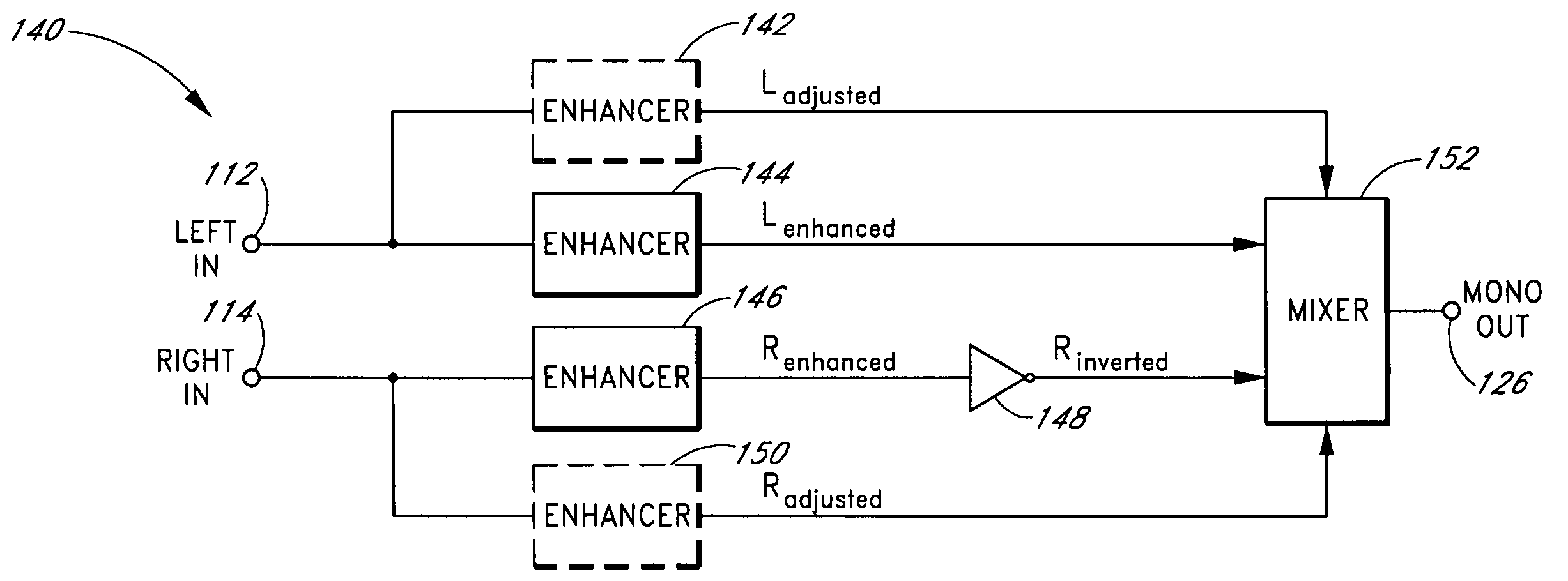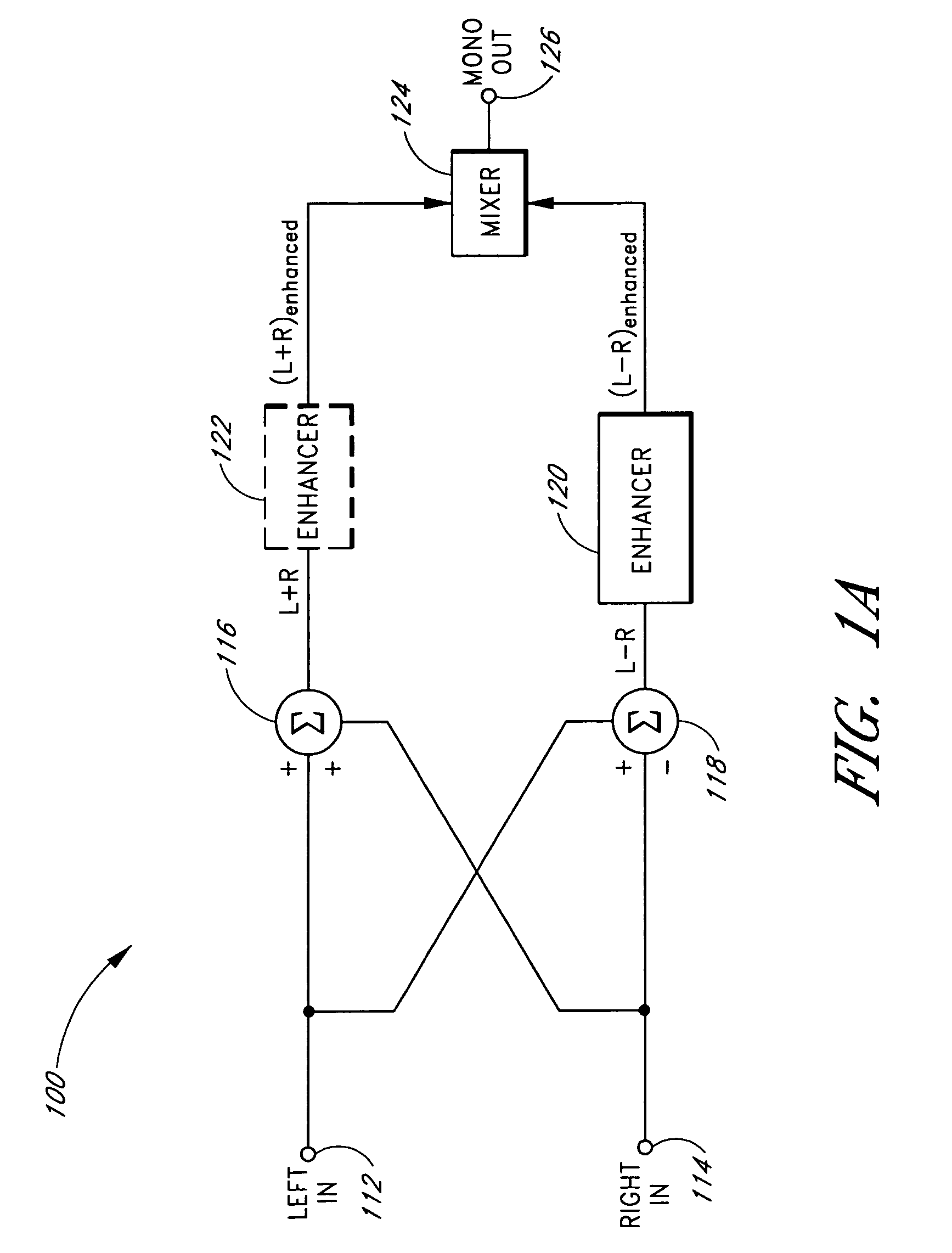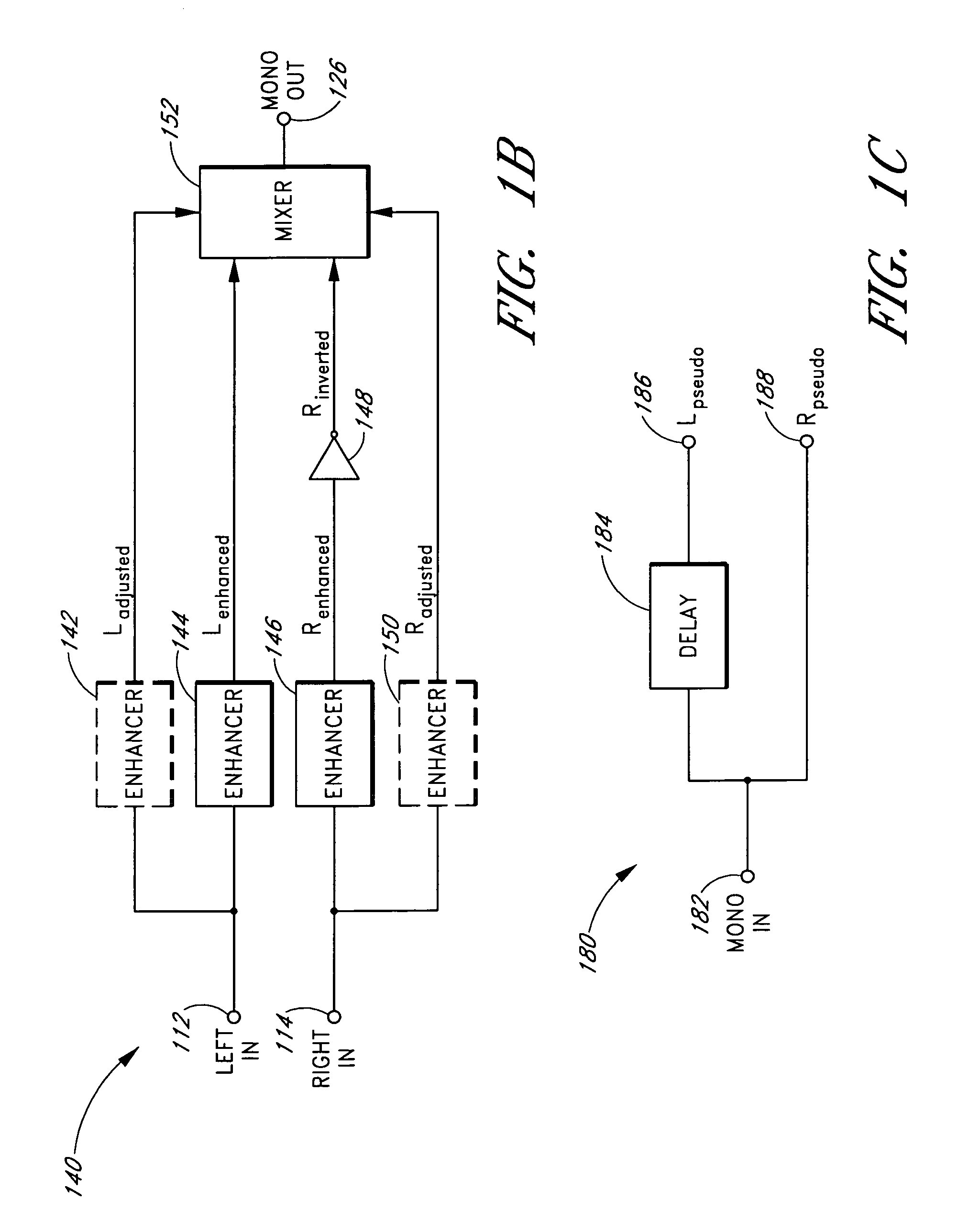Systems and methods of spatial image enhancement of a sound source
a spatial image and sound source technology, applied in the field of spatial image enhancement, can solve the problems of loss of information, system often cannot accurately reproduce stereophonic information, and poor audio capability of devices
- Summary
- Abstract
- Description
- Claims
- Application Information
AI Technical Summary
Benefits of technology
Problems solved by technology
Method used
Image
Examples
Embodiment Construction
[0041]An audio enhancement system combines stereophonic input signals to generate a monaural output signal with enhanced spatial characteristics. To avoid the loss of signal information that occurs when the stereo input signals are merely added, in one embodiment the audio enhancement system adjusts the phase of the signals. Phase adjustment is used to modify the frequency response of the system at frequencies where the system responses have approximately equal amplitudes and opposite phases. The adjustment at these frequencies avoids potential cancellation of information and preserves the original audio fidelity.
[0042]In one embodiment, the stereophonic information is processed to create an enhanced spatial impression when the information from different channels is combined to create a monophonic output. For example, an embodiment of the invention uses spatial enhancement to enhance the reproduction of stereo sound on a television having a monophonic audio output.
[0043]In an embodi...
PUM
 Login to View More
Login to View More Abstract
Description
Claims
Application Information
 Login to View More
Login to View More - R&D Engineer
- R&D Manager
- IP Professional
- Industry Leading Data Capabilities
- Powerful AI technology
- Patent DNA Extraction
Browse by: Latest US Patents, China's latest patents, Technical Efficacy Thesaurus, Application Domain, Technology Topic, Popular Technical Reports.
© 2024 PatSnap. All rights reserved.Legal|Privacy policy|Modern Slavery Act Transparency Statement|Sitemap|About US| Contact US: help@patsnap.com










